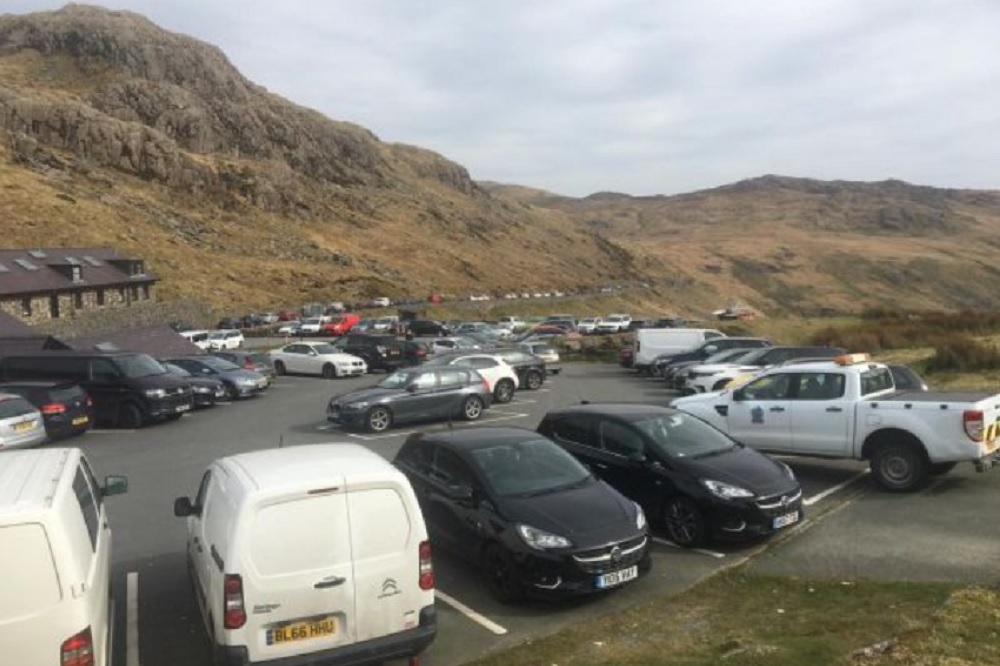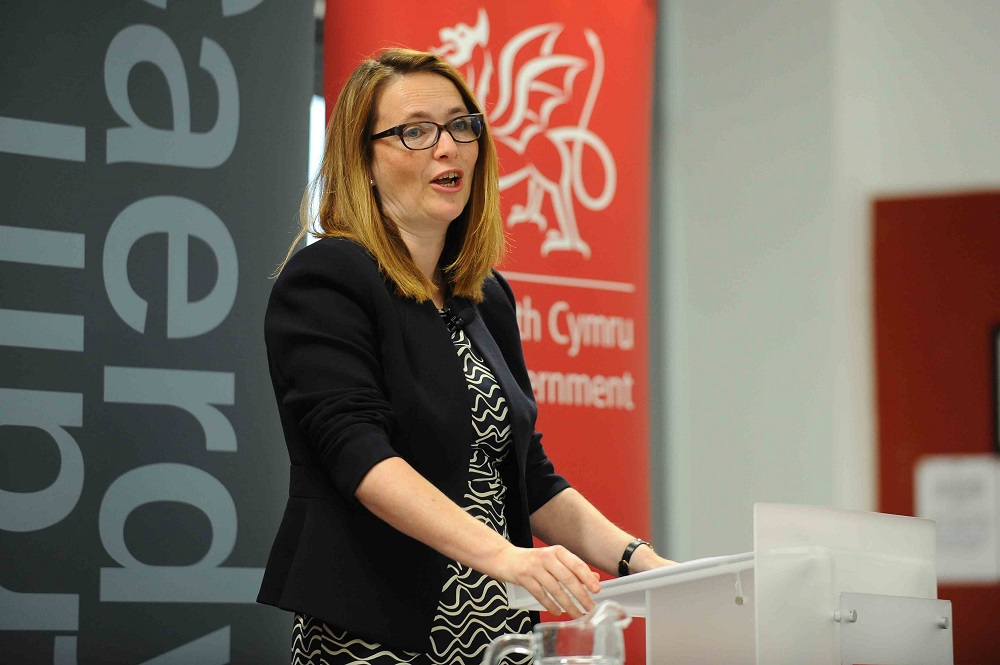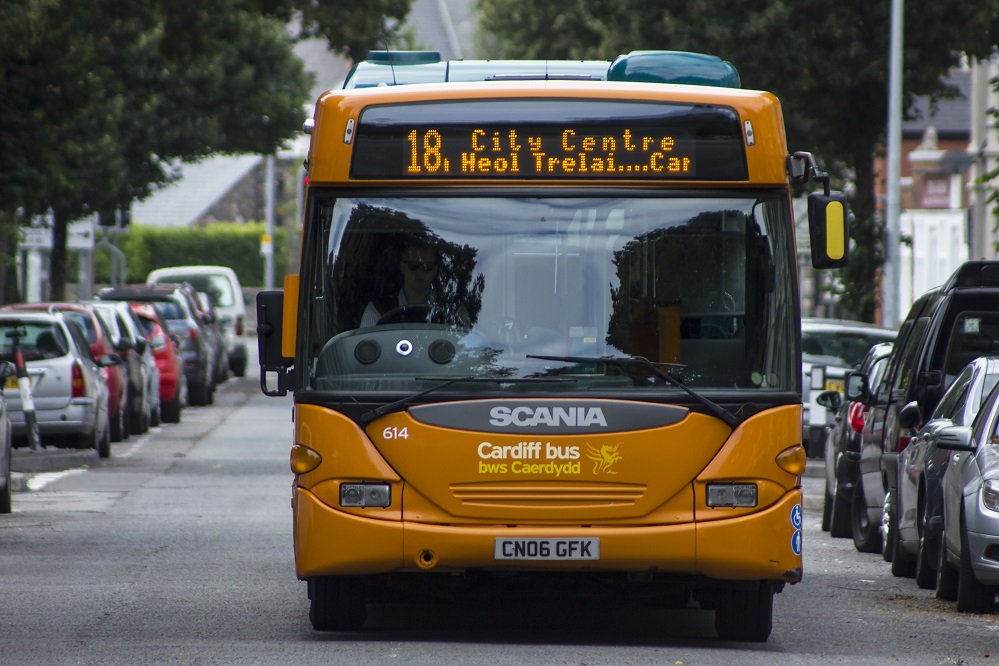Senedd roundup: How the “lockdown” will be enforced in Wales

Owen Donovan, Senedd Home
You’ve probably already seen, heard or read something about this, but I thought it was worth going through recent Public Health regulations in full (regulations – pdf; explanatory memorandum – pdf) as there are some differences with how the lockdown/social distancing is being enforced in Wales compared to the rest of the UK.
The regulations came into effect on 26th March 2020, but the Senedd will need to approve them within 28 days (on or by 23rd April 2020 by my count) for them to remain in force.
The Welsh Government is to review the regulations every 21 days with the first review due by 15th April 2020.
As for the specifics:
Closure of businesses
- A number of business premises have been ordered to close to the public including restaurants, cafes (except canteens in hospitals, workplaces etc.), outdoor markets, car showrooms, auction houses, bars and pubs – this covers beer gardens and outside seating areas too.
- Takeaway food services, deliveries and online/telephone orders can continue at a “closed” premises.
- Entertainment, cultural and leisure venues – including cinemas, leisure centres/swimming pools, playgrounds, funfairs, theatres, bingo halls, museums, casinos, betting shops, beauty salons and massage parlours – also have to close to the public but will be allowed to remain open if providing performances/games/reading material etc. on television, radio or the internet.
- Tourist accommodation has to close unless it’s being used to house the homeless/vulnerable, provide emergency accommodation or hosts essential services like blood donation centres.
- Franchises have to comply with the closure in their entirety, not on an outlet-by-outlet manner.
Businesses which can remain open
- Premises which can remain open during the emergency period include food retailers, off licences/corner shops, breweries, pharmacies, homeware and building suppliers, petrol stations, car repair companies, bicycle shops, taxi companies, laundrettes/dry cleaners, dentists, vets, agricultural suppliers, storage and distribution hubs, car parks and public toilets.
- A strict 2 metre (6ft6) social distancing policy (except between two members of the same household and carers) must be applied by those premises remaining open, including (where applicable) restricting the numbers of people who can enter and exit at any one time (this isn’t being enforced in England).
Restrictions on movements and public gatherings
- Places of worship are closed to the public except for funerals (including the broadcast of funerals) or to provide voluntary services (food banks, homeless services, blood donation etc.).
- 2-metre distance rule applies for funeral services, burials and at crematoriums (this isn’t being enforced in England as far as I can tell).
- Community centres are closed except to provide essential voluntary services.
- Nobody should leave their main residence except for shopping/seeking services at an open business; accessing critical public services (i.e. social services, DWP, childcare, victim services); fulfilling bail requirements; taking exercise no more than once a day; for medical reasons; to provide care to a vulnerable person; to donate blood; or for work and/or voluntary activities. The homeless are exempt and children of separated parents can move between their parents’ households.
- People can only attend funerals for close family members or members of their household – or as a carer for a funeral attendee – but can only attend funerals for friends if no member of the deceased’s family is attending.
- People can still move house “where necessary” (though moving house has been discouraged) and can leave their house to “avoid injury or illness or to escape risk of harm”.
- No more than two people can gather in public unless all people gathered are members of the same household; it’s essential for work; is at a funeral; to move house; provide care for a vulnerable person; provide emergency assistance; to participate in legal proceedings or fulfil a legal obligation.
- Public authorities (councils, National Trust, Natural Resources Wales, National Park Authorities) have the power to close public paths and access to land – particularly areas liable to large numbers of people congregating close to each other or otherwise pose a risk of spreading infection.
- Where public authorities have closed a public path they need to put a notice at the site of closure and on their website.
Enforcement and fines
- Police officers, PCSOs and anyone designated by the Welsh Government or public authorities will have the power to issue on-the-spot fines to anyone they believe is breaching movement restrictions.
- They can also order someone to return home (or order someone’s children to be taken home) or take them themselves through the use of reasonable force – though only if it’s deemed necessary and proportionate. The powers extend to breaking up and dispersing gatherings in public.
- A general power of entry has been granted to allow those enforcing the regulations to enter any premises they believe may be flouting the regulations.
- The on-the-spot fine is £60, reduced to £30 if paid within 14 days following its issue.
- If a person has already been fined once, the fine is increased to £120 (in England, the fine keeps doubling to a maximum of £960).

Education Minister warns against unconditional university offers
In a letter to Welsh universities, the Education Minister, Kirsty Williams (Lib Dem, Brecon & Radnor), has cautioned against the use of unconditional offers following the cancellation of 2020’s A-Level exams.
The Minister reassures universities that A-Level students “would be awarded a fair grade”.
“I do not believe, therefore, that there is any good reason for the usual admissions cycle to be disrupted or for universities to begin making their offers unconditional. This would not be in the best interests of students or higher education institutions. I appreciate that the government in England has to deal with the consequences of moving away from AS levels and the impact this has on generating fair grades, but this is best resolved by the four governments and regulators working together to keep, as far as possible, to the usual admission cycle.”
– Education Minister, Kirsty Williams
The Minister also said that no final year university students should be “penalised unfairly” for studying during the pandemic. She also reassured students that their Term 3 tuition fee and maintenance payments would be made as usual though the Student Loan Company.

Plaid Cymru: Debts of “drafted” final year students should be partly written-off
Plaid Cymru has called for the debts of final year medical, nursing and social work students – who will be offered temporary full-time placements during the pandemic – to be partly written-off.
Rhun ap Iorwerth AM (Plaid, Ynys Môn) said: “To show our gratitude and as recognition of the invaluable contribution they are making and will continue to make to the frontline operation over the course of this crisis, part of their student debt should be written off.”
Although Plaid Cymru didn’t say how large a proportion of their debt should be written-off, he also repeated calls for all frontline workers to have full access to virus testing, proper personal protective equipment (PPE) and access to mental health support.

Free bus travel for NHS staff; north-south air link and free Traws Cymru services suspended
The Welsh Government has announced that NHS staff will receive free bus travel for the next three months as a condition of a £69million hardship fund for bus companies. Bus passenger numbers are said to have fallen by 90% since the emergency shutdown period started.
Transport for Wales is already offering free travel for NHS workers, while the hardship fund will also ensure some bus services continue to operate as usual. However, free weekend travel on the long-distance Traws Cymru network and the Anglesey air link have been suspended.
Economy & Transport Minister, Ken Skates (Lab, Clwyd South) said: “Our priority at the moment is to protect the public, people working on public transport and our NHS. We must act now to ensure when the pandemic is over, we will have a bus and rail network to allow us to achieve this ambition.”

Government launches £500 million economic resilience fund
Building upon recent announcements to support businesses through the pandemic shutdown period, yesterday the Welsh Government announced a £500 million fund aimed at businesses – including social enterprises/Third Sector – which have been forced to stop trading due to public health restrictions.
Accepting that only the UK Government has the kind of powers at their disposal to minimise the damage to the economy as a whole, the First Minister said the Welsh Government would aim to “fill gaps” in emergency coverage for businesses that would otherwise face insolvency.
The new fund is made up of:
- £100million to Banc to provide loans of between £5,000 and £250,000 “at favorable interest rates” (2% fixed for six years) for businesses facing immediate cash flow problems.
- From mid-April, grants of up to £10,000 for small businesses employing up to 9 people.
- From next week (w/c 6th April 2020) grants of up to £100,000 for businesses employing between 10-249 people.
- Unspecified support – within the next fortnight – for larger businesses headquartered in Wales.
Support our Nation today
For the price of a cup of coffee a month you can help us create an independent, not-for-profit, national news service for the people of Wales, by the people of Wales.






This is a comment for Mark Mansfield, the author of the senate roundup. Could you not get someone knowledgable to improve your software. From time to time I and I suspect others also need to copy bits and pieces from Nation Cymu, not for profit but for didtribution to people who do not have a computer. Your piece today about the separation rules in Wales is a case in point. One can copy and paste page by page, but if the message exceeds one page the copy and paste function does not work. I tried to copy it page by… Read more »
Why are we allowed to exercise only once a day? That’s nonsensical and bad law- it can’t be enforced. It’s not the case in England or Scotland. Why Wales?
Doesn’t the word “reasonable” appear somewhere in the Welsh legislation? Any chance of publishing the actual wording? There’s a lot of interpretations of the law floating around which aren’t necessarily accurate (least if all those promulgated by various police forces) , and which tend to go further than the actual regulations.
March 31 North Wales (BCU Area) just over 12 people per 100,000 of population are confirmed cases. Putting the whole population in a lockdown seems the wrong policy. Under these circumstances it might be much more effective to assiduously seek out the contacts of confirmed cases, testing them and isolating where necessary. This is what has proven to work in South Korea. It seems to be working in Iceland and Sweden The rest of us can go about our normal business. The current policy is damaging people’s health and livelihood. What may be important for London is not right for… Read more »